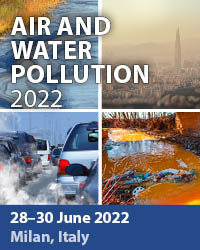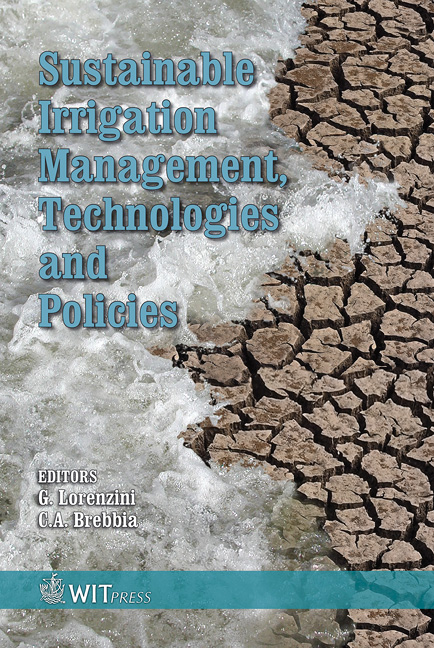Decision Support Systems For Efficient Irrigated Agriculture
Price
Free (open access)
Transaction
Volume
96
Pages
10
Published
2006
Size
627 kb
Paper DOI
10.2495/SI060241
Copyright
WIT Press
Author(s)
R. Oad, L. Garcia, K.-D. Kinzli & D. Patterson
Abstract
Water is the lifeblood of the American West and the foundation of its economy, but it remains its scarcest resource. The explosive population growth in western urban areas, the emerging need for water for environmental and recreational uses, and the national importance of the domestic food production from western farms are driving major conflicts between these competing water uses (US Department of Interior, 2003). Irrigated agriculture in particular is by far the largest water user – 80% countrywide and 90% in the Western U.S – and since it is perceived to be a comparatively inefficient user, it is frequently asked to decrease its water consumption. Irrigated agriculture in the Middle Rio Grande diverts large quantities of river water, which is believed to leave insufficient water to meet other societal needs such as urban and wildlife requirements. This paper will present our research on options to make irrigation system operations more efficient. Most irrigation systems can meet their users’ needs with decreased river diversions by adopting operational procedures, which are based on real-time knowledge of available water supplies and crop water requirements. The paper will describe our on-going research in the Middle Rio Grande Valley, to develop a Decision-Support System (DSS) that can assist water managers to closely match water deliveries to crop water requirements, thereby reducing river diversions. The DSS uses linear programming logic with an objective function to find an optimum water delivery schedule for the service areas in an irrigation system. Water delivery using the DSS is accomplished using three modules: a water demand module, a supply network module and an irrigation scheduling module. Limited field validation shows that the DSS is indeed able to correctly model the irrigation delivery system, and recommend water delivery schedules that are reasonable. Future plans include more intensive field validation and implementation in the Middle Rio Grande irrigation service area. Keywords: irrigated agriculture, decision support systems, competing water uses, operational procedures, ecology, wildlife habitat, rotational water delivery.
Keywords
irrigated agriculture, decision support systems, competing water uses, operational procedures, ecology, wildlife habitat, rotational water delivery.





